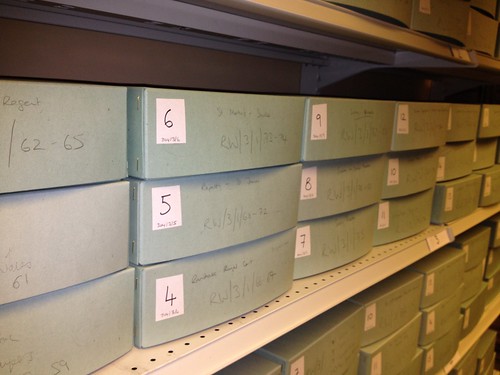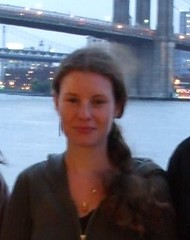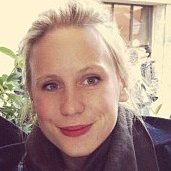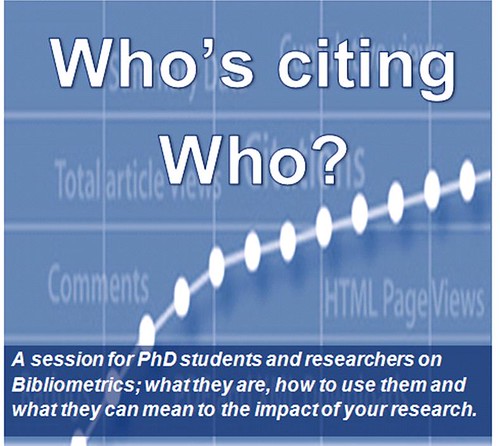Eve Smith is a first year doctoral candidate in the Drama and Theatre department.
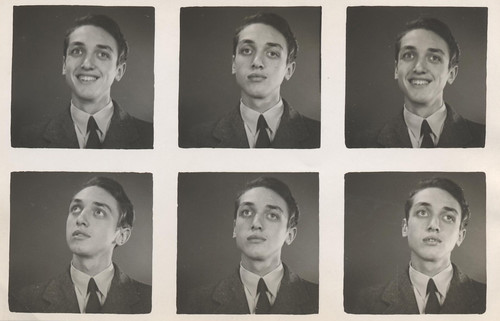 Above: Roy Waters as a Young Man
Above: Roy Waters as a Young Man
Since August I have spent a lot of time sat in a room on the third floor of The Founder’s Building, looking out over the quad and listening to the clock chime the hours away. This room houses the archives of RHUL. It is due to one of the collections within the archive that I received a place to study for a Collaborative Doctoral Award with the Drama and Theatre Department and the Victoria and Albert Museum in January 2013. This collection is called the Roy Waters Theatre Collection and helped to inspire my PhD which is concerned with collectors of theatrical ephemera and the private and public spaces occupied by the collection. The Roy Waters Theatre Collection is a result of Roy’s collecting over a period of forty years. It contains an enormous number of objects related to the theatre such as playbills, posters, autograph letters and photographs, with a particular emphasis on ephemera concerning Oscar Wilde and Noël Coward. The notion that the archive is solely a resource for history students is a great misconception: the breadth and wealth of information contained in the Roy Waters Theatre Collection is an invaluable source for any drama student at RHUL. Indeed, the archives also contain Gay Sweatshop Theatre Company collections and RedShift Theatre Company collections amongst others. Similarly, Blythe House in West Kensington holds the theatre and performance archives for the V&A and is another fantastic archival resource for drama students that I often use.
At this point in my studies, I am more interested in who the collector is, and the motivations for collecting theatrical ephemera rather than the actual content of the collection itself. Since the summer, therefore, I have been working on the personal papers contained within Roy’s collection. Eighty boxes hold Roy’s old bank statements, family trees, diary entries and personal photographs. I have found this research absolutely fascinating and, at times, very amusing (Roy’s diaries and newsletters demonstrate his wonderful way with words and his weakness for gossip!) Roy died in 2010 and it is a privilege to be able to read through the personal papers of a man who, unfortunately, I never had the opportunity to meet. I am now aware of intimate details concerning Roy’s health, his friendships, his daily routine and, vitally, his motivations for collecting. Working with such collections in the archive, and particularly handling such objects, allows the researcher to feel a surprisingly strong connection to the past and develop a genuine relationship with the person behind the collection. This in-depth exploration of Roy has greatly enriched my own research on collections and collectors and I genuinely look forward to going up to the archive to see what I will discover next.
The scale of a collection can be daunting. Roy’s collection is very large. The material housed in just the very first box of Roy’s personal papers is so dense that I sometimes doubt I’ll ever get through all eighty of them! It is therefore incredibly useful to have a defined purpose or research question in mind when accessing the collections. Without this there is the real possibility of spending hours and hours looking through beautiful objects or reading hundreds of diary entries without any clear idea of what it is you hope to discover. Although this makes for a pleasant afternoon, you may come away with little idea of how this has impacted upon or benefited your research. It is also really important to access the online catalogue for the collections before you start work in the archives. The catalogues contain hugely detailed descriptions of the boxes within the collection and the contents found within them. This is a fantastic way to hone in on the specific objects that may be valuable to your work as well as providing a more general overview of the contents of a particular collection.
The romantic image of the dusty, silent archive may not be entirely accurate but there is something rather special about opening up a box and untying the cream ribbon from the individual folders to explore what is housed inside. I think that this is where the appeal of the archive really lies: the possibility of discovering something that has the potential to hugely inform, enrich, and even subvert your research. Whatever your subject area or research topic, the archive is an invaluable resource. Start by exploring the catalogues online to see what the collections at RHUL contain: you never know what treasures you may stumble upon.
You can find out more about our Roy Waters Theatre Collection in this online exhibition.
